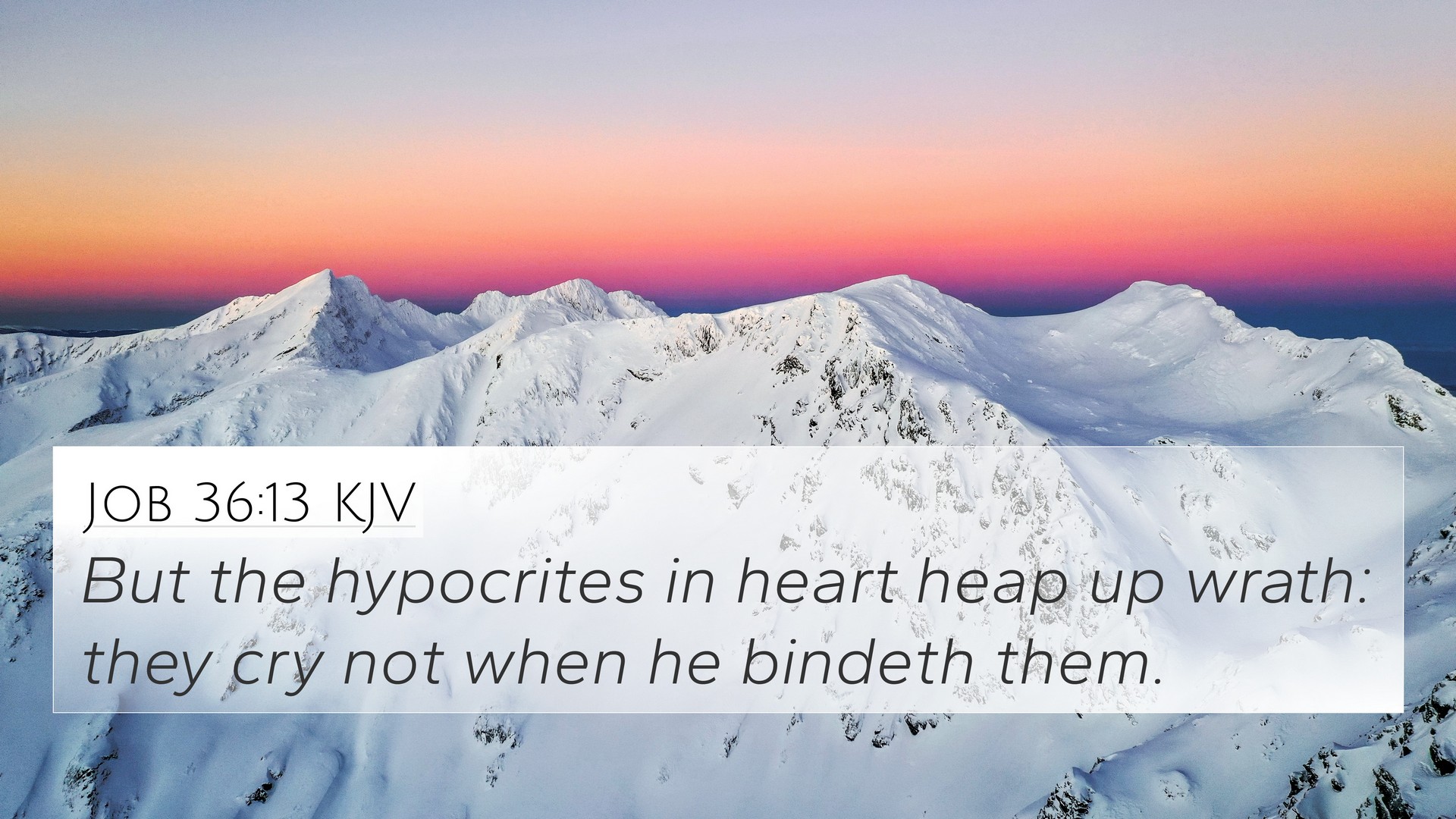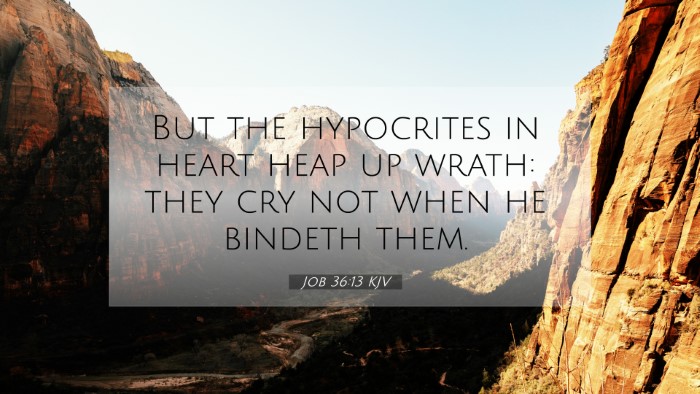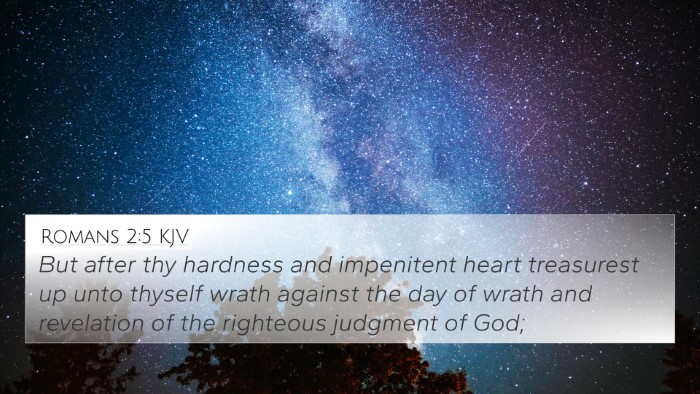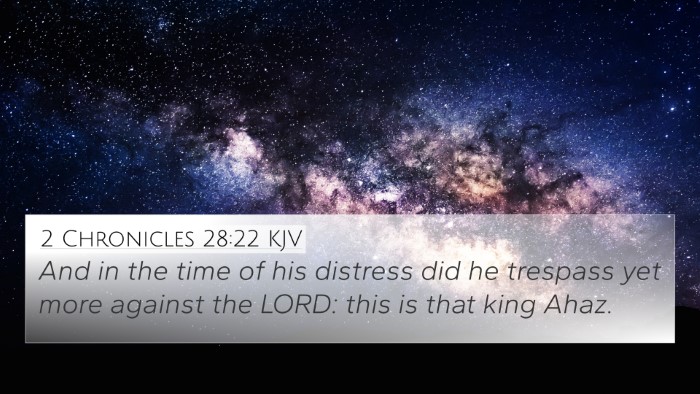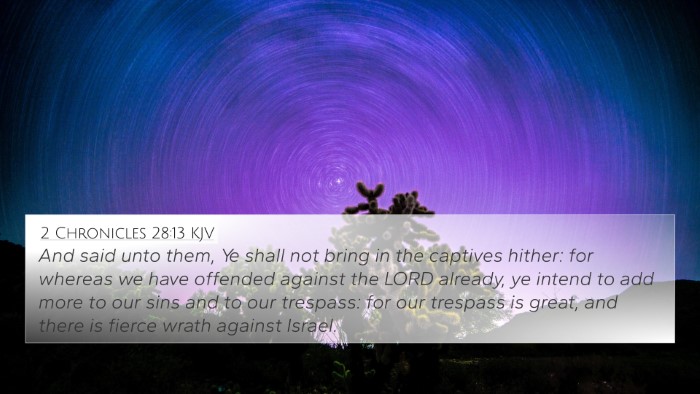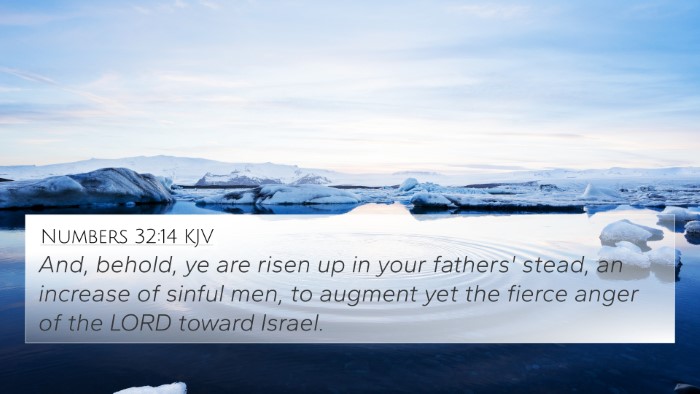Understanding Job 36:13
Job 36:13: "But the ungodly in heart lay up wrath: they cry not when he bindeth them."
Summary of Job 36:13
This verse encapsulates a profound truth regarding the nature of the wicked and their response to God's discipline. It emphasizes the consequences of a heart that is not aligned with God. By analyzing this verse through the lens of public domain commentaries, we can derive deeper insights.
Insights from Commentaries
Matthew Henry's Commentary
Henry notes that the "ungodly in heart" are those who harbor resentment and defiance against God. They do not call upon Him when faced with judgment. Instead of repenting, they continue to cultivate their anger, showcasing the hardness of their hearts.
Albert Barnes' Notes
Barnes elaborates on the consequences of ungodliness, concluding that such hearts face the wrath of God. He highlights that the ungodly may endure suffering but often do not acknowledge God's involvement. This signifies a deeper spiritual blindness.
Adam Clarke's Commentary
Clarke stresses the importance of understanding the context within the book of Job. The "wrath" mentioned is linked to God's judgments, and the "binding" refers to the servitude under which the ungodly live. Clarke points out the necessity of repentance to escape such bindings.
Significance of the Verse
This verse serves as a stern reminder of the consequences of spiritual pride and defiance against God. It is an invitation to self-reflect on one's walk with God and to recognize the need for humility and repentance.
Bible Verse Cross-References
Job 36:13 connects with various scriptures that echo similar themes. Here are some notable cross-references:
- Job 34:26-27: Discussing the behavior of the wicked and their rejection of God's ways.
- Psalms 73:17: The understanding of the fate of the wicked in the presence of God.
- Proverbs 28:9: An exploration of how God does not hear the prayer of those who turn away from His word.
- Isaiah 59:2: Addressing how sin causes separation from God.
- Romans 2:5: A warning regarding the hardness of heart and storing up wrath.
- Hebrews 3:15: Encouragement to not harden our hearts as in the rebellion.
- Revelation 9:20-21: The unrepentant nature of people even in the face of judgment.
- Matthew 13:15: Illustrating the state of those whose hearts have grown dull.
- James 4:8: Encouragement to draw near to God to receive His mercy.
Connections Between Bible Verses
The thematic connections between these verses create a dialogue that underscores God's justice in contrast to human defiance. A comparative Bible verse analysis reveals how judgment and mercy are recurrent themes throughout scripture, emphasizing both the gravity of sin and the hope for redemption.
Tools for Bible Cross-Referencing
Utilizing tools like a Bible concordance or a cross-reference Bible study guide can greatly enhance one's understanding of these connections. These resources can help in:
- Identifying connections between Old and New Testament themes.
- Exploring detailed cross-references between Gospels.
- Understanding links between prophetic writings and apostolic teachings.
- Conducting Bible cross-references for sermon preparation.
In summary, Job 36:13 emphasizes the importance of recognizing the condition of our hearts in relation to God. By integrating scripture and referring to numerous commentaries, we gain a comprehensive understanding of the implications of a hardened heart in the face of divine judgment. This dialogue continues through various biblical texts, making cross-referencing an invaluable tool for deeper spiritual insights.
